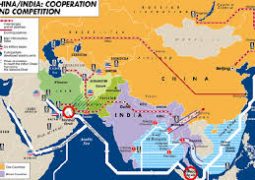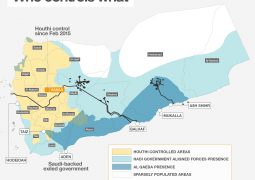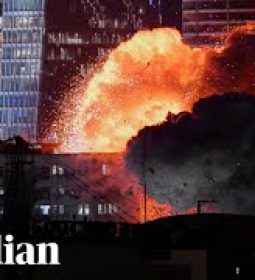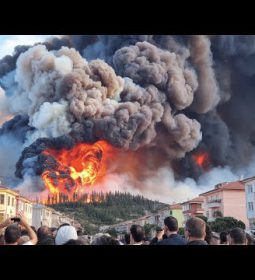Israeli officials mull granting settlers ‘protected population’ status in West Bank
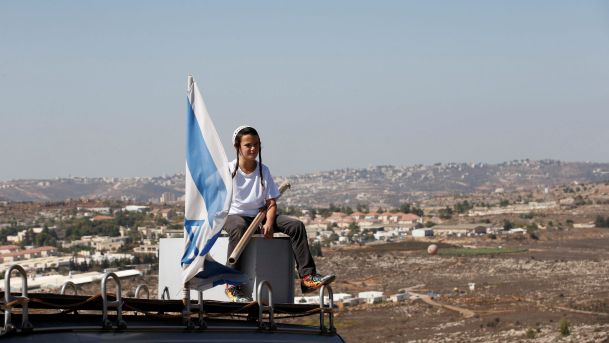
Justice minister and attorney general are looking for solutions to problem of illegal outposts like Amona, that were built on private Palestinian land.
Attorney General Avichai Mendelblit and Justice Minister Ayelet Shaked are examining three possible solutions to legalize settlements in the West Bank, including defining settlers as a local population like the Palestinians. Such a solution would allow Israel to expropriate Palestinian land for settlements.
Other possibilities include making use of abandoned and unclaimed assets, and introducing a compensation mechanism similar to one used in Cyprus that has gained approval from the international community.
These ideas are seen as alternatives to the bill now being advanced in the Knesset by the government, which would legalize settlements and outposts built on privately owned Palestinian land if they were initially sanctioned by the government. The attorney general has already expressed concern about the bill, saying it will not stand up to judicial scrutiny and will generate problems in the international arena.
Regarding the first suggested solution, the Justice Ministry is checking whether settlers can be declared “protected persons” in an area categorized under international law as a “war zone.” The settlers do not currently have this status and, therefore, Israel can only operate in the West Bank for security purposes or for the sake of the Palestinians, who are defined as “protected persons.”
Such a declaration would authorize the government to carry out actions in the occupied territories – including the expropriation of lands for settlements – even if this harmed the interest of the Palestinians, since the settlers’ interest would also be taken into account as part of the public interest.
A source involved in the matter says this proposal has been “making the rounds,” and that the attorney general has yet to decide on its feasibility.
Michael Sfard, a lawyer who specializes in international law and the rules of war – and also represents the Yesh Din organization for human rights – said that under the international law concerning occupation, “The local population has the standing of ‘protected persons’ under the Geneva Convention. The laws regarding occupation say the occupier is only permitted to carry out actions for one of two interests: security; or for the benefit of the occupied people. For example, there is a Justice Ministry opinion that prohibited the construction of a cemetery in Ma’aleh Adumim, because it was not intended for the benefit of the protected population.
“The Geneva Convention protects those who, in a time of conflict, find themselves under control or occupation by another country,” Sfard added. “There is no way to interpret this to mean that an Israeli who is in a place under Israeli control is a protected person.”
However, in 1972, the High Court of Justice ruled that the settlers in Kiryat Arba could be placed under this definition, when a question arose about the electricity supply reaching them.
The compensation mechanism idea is similar to the one instituted in Cyprus after the country was divided in 1974 into Northern Cyprus, under Turkish military control, and the Republic of Cyprus in the south, where Greek Cypriots are in control. The system, established in 2005, was implemented to set compensation for the assets of people who were left in the other part of Cyprus following the division. It gave people six years to submit a claim to a special committee in Northern Cyprus.
To obtain compensation, a person had to prove beyond a reasonable doubt that the asset was owned by them in 1974, that they were forced to abandon it due to circumstances beyond their control, and that no one else had any ownership claim on it.
In 2010, the European Court of Justice rejected a lawsuit by people from southern Cyprus against the Turkish government, and ruled that the Cyprus compensation mechanism was accessible and effective.
The Justice Ministry is examining this type of idea in the hope that it too would gain international acceptance.
Three months ago, Mendelblit’s team held a meeting with State Prosecutor Shai Nitzan, his deputies, members of the team working on the Amona issue – the illegal outpost that the High Court of Justice has ordered evacuated by December 25, a decision the government tried to delay, without success – and representatives from the relevant ministries to discuss what can be done with abandoned assets. The Amona team has considered whether the outpost could be evacuated and then rebuilt on adjacent lands, which it said could be classified as abandoned property.
On Wednesday, after the settlement-legalization bill passed its preliminary reading in the Knesset, government officials said that rebuilding outposts on adjacent abandoned land was the most realistic solution for Amona and similar cases.
After the meeting in August, Mendelblit said about Amona: “There is no legal impediment to examining the property status of the adjacent plots, which first indications show to be abandoned assets – so it will be possible to have an orderly and thorough discussion of the recommendation from the Amona regulation team.
“Once the examination is completed and we have as complete a picture of the data as possible, [we] will be able to address the legal issues entailed, including management of abandoned assets and the planning and construction laws,” he added.
Although data collection regarding the lands is not yet complete, the government is already seeking a decision on the move’s feasibility. A source involved in the matter says the attorney general is expected to present his opinion soon.
By Chaim Levinson and Sharon Pulwer
- Previous Deputy foreign minister of Tajikistan visits Uzbekistan
- Next France’s conservative frontrunners Juppe, Sarkozy say no to Turkey in EU



